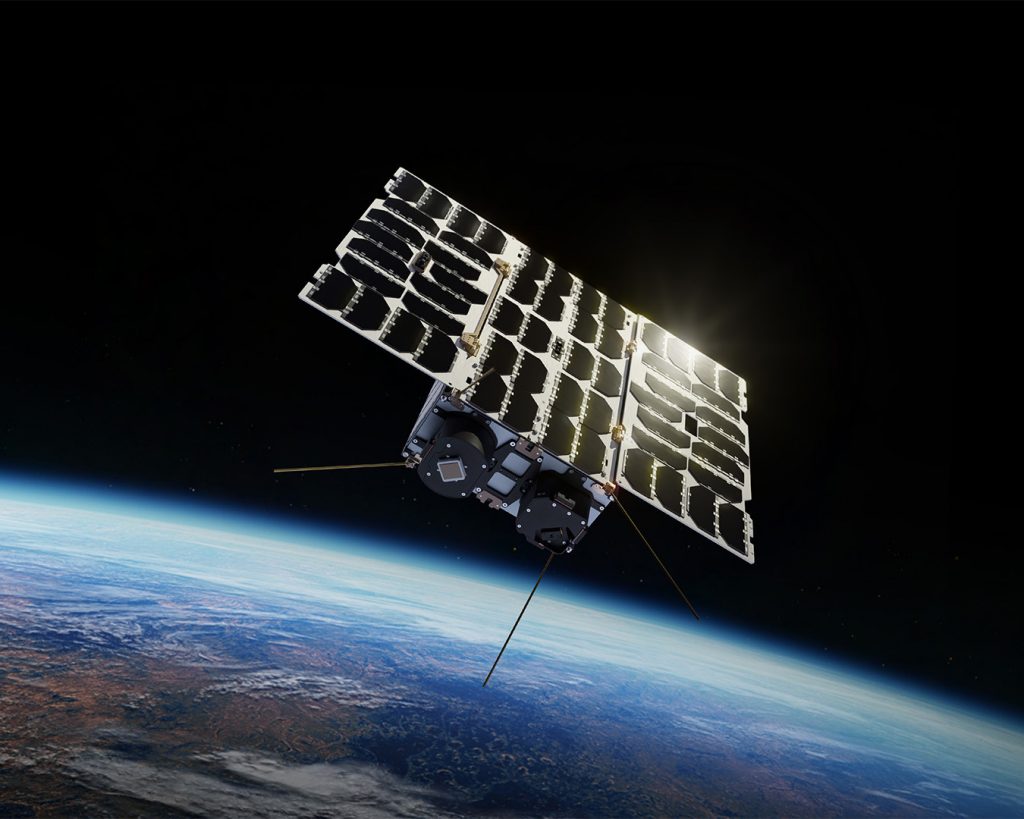- 2022-11-30
ONERA has signed a contract with Kongsberg NanoAvionics (NanoAvionics) for the procurement of two 8U and 6U nanosat platforms, dedicated to the FlyLab mission. The contract includes the supply of all the components necessary for the operation of the satellites, but also the integration of the payloads and the environmental tests. The two nanosat platforms feature NanoAvionics’s standardized modular design and payload versatility to accommodating sophisticated missions such as FLyLab. NanoAvionics will also provide ONERA with the software and hardware to test, validate and operate the satellites. Delivery of the complete platforms is scheduled for early 2025 and launch the same year.
The cubesat standard has redefined many aspects of space activities, including science, from Earth observation and monitoring to fundamental astrophysical studies. The New Space methods allow to realize space missions with reduced costs and delays, sometimes grouping many satellites in a constellation. This approach and the reduction of launch costs also facilitate the validation of technologies or hardware and software components. These two major aspects are combined in the FlyLab mission.
Designed and operated by ONERA, the FlyLab mission is, as its name suggests, a true “Flying Laboratory” composed of two satellites, FlyLab-1 (8U) and FlyLab-2 (6U), flying in a sun-synchronous orbit (SSO) at about 550 km. Deployed simultaneously, the two satellites are equipped with a fine attitude control system and a propulsion system: electric for the first, hybrid chemical-cold gas for the second.


The FlyLab mission also aims to validate the design of an uncooled megapixel thermal camera developed jointly with industrial partners which will be on board FlyLab-1. With a size of 1.5 U, it will make observations with a resolution of about 90 m/pixel at 550 km. Previously calibrated on the ground, the flight data will allow the validation of the camera calibration performed on board. Also embarked on FlyLab-1, a visible camera of 1 U size with a resolution of about 50 m / pixel at 550 km.

For its own part, the FlyLab-2 satellite carries two payloads developed by ONERA. The first is composed of VHF antennas and a software defined radio card (SDR) allowing the reception of a signal emitted from the ground to characterize the ionosphere. It extends and improves the ONERA experiment that will be launched in early 2023. The second payload is aimed at radar analysis and consists of an L-band antenna and another SDR card that analyzes signals emitted by a ground-based device.
Vytenis J. Buzas, co-founder and CEO of NanoAvonics, said: “ONERA is a great new customer for NanoAvionics and being selected for their FlyLab mission, validating sophisticated components and equipment, is an important acknowledgement of our capabilities as a leading mission integrator and platform manufacturer, both globally and within the French space market – in addition to ONERA, NanoAvionics has already supplied six other French companies with small satellite platforms or full small satellite missions.”
“After revolutionizing access to space, the New Space is transforming its commercial, scientific and defense uses. As a government expert working for aerospace manufacturers, ONERA has a key role to play in this new ecosystem, where high technology, innovation and reactivity are combined. Thus, ONERA wishes to explore these new possibilities, through a self-financed project, in order to develop and launch its own nanosat missions to test new technologies in orbit. ONERA, a key player in scientific space research is, with the FlyLab mission, paving the way for the dual missions of the future” said Franck Lefèvre, ONERA’s Technical Director General.






